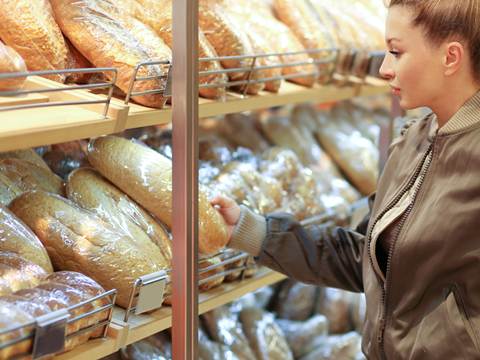
Avery Dennison has partnered with The Kroger Co. to achieve item-level digital identification via RFID – aiming to keep food fresher, lessen waste, and help associates optimize their time by automating inventories.
Starting with the bakery department, Kroger products will implement RFID-embedded labels on each item. The resultant digital identification is set to keep inventory information up-to-date and accurate, ensuring maximum freshness, minimal waste, and an overall improvement in associate experience.
Data from the RFID labels can be used to automate inventory management and help customers save time. This process is described as ‘a foundational step in delivering a more seamless customer and associate experience across all fresh categories long-term’.
“Kroger’s customers and associates are at the heart of everything we do,” said Jordan Poff, vice president of retail operations at Kroger. “Our work with Avery Dennison will improve inventory visibility, which means products will be on the shelves when our customers want them, while enabling our associates to spend more time with our customers.”
Julie Vargas, vice president and general manager of identification solutions at Avery Dennison, adds: “For decades, Avery Dennison has been the driving force behind connecting physical products with a digital identity to unlock data accuracy and efficiency in retail and supply chain operations.
“With this collaboration, we are committed to Kroger’s initiatives to optimize associate time, reduce waste from overproduction and ultimately deliver a uniquely valuable customer experience.”
Checkpoint Systems recently spoke to Packaging Europe about the use of RFID technology in food packaging, particularly its relevance to food safety, supply chain tracking, and inventory management. It is expected to increase transparency and trust between food providers and consumers, identify spoilage within the supply chain, and more.
Other RFID solutions from Avery Dennison include AD Dogbone and AD Squarewave, its first Ultra High Frequency (UHF) RFID inlays and tags to feature the Impinj M830 chip. These are designed for maximum performance in various automotive, logistics, and industrial environments, unlocking “high speed readings” to help customers focus on their “key business priorities”.
Meanwhile, the AD Minidose U9XM UHF and RFID high-memory inlays and tags are designed to unlock source tagging, end-to-end traceability, and product authentication for small pharmaceutical and healthcare items. Their memory capacities are set to help converters, system integrators, healthcare providers, and OEMs to store expiry dates and batch/lot information.
If you liked this story, you might also enjoy:
The ultimate guide to the Packaging and Packaging Waste Regulation in 2024
How are the top brands progressing on packaging sustainability?
Sustainable Innovation Report 2024: Current trends and future priorities
Everything you need to know about global plastic sustainability regulation


















No comments yet